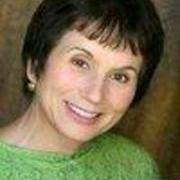Hundreds of people have asked me why someone develops an eating disorder. Of course many issues are involved, but from my exploration of this field over the years, I have concluded that there is one outstanding theme that runs through every person with an eating disorder whom I have encountered.
Early in their lives, people with eating disorders have experienced, on a sustained basis, relentless boundary invasion on every level.
When their physical, emotional, psychological, intellectual, sexual, and creative boundaries are consistently ignored and penetrated, people experience total boundary invasion. With no control and no way to end, protest, or, often, even acknowledge such invasions, these persons feel helplessness, despair, and a certainty that they are worthless to themselves or anyone else.
The consequences of such total invasion are vast. One consequence is an eating disorder. Having had so many boundaries disregarded, a person has no knowledge or skills in recognizing or honoring boundaries herself. She will eat or starve for emotional relief.
She may eat vast amounts of food for comfort value alone. She may deprive herself of food until her life is in danger. She has no internal regulator that tells her when she has reached her limit and experienced enough. Being oblivious to any boundaries means being oblivious to limits of any kind.
The compulsive overeater eats whenever and whatever she likes. She bases her choices on self-medication issues, not feelings of physical hunger.
The anorexic will not eat. There is no limit to her not eating. She will starve herself to death in search of relief from her emotional pain. She knows nothing of the experience of having enough. She couldn't say, "Enough," to an invader of her boundaries, and she can't say it to herself. The concept of enough has no meaning to her. She often feels that if she "disappeared," she might find some permanent relief.
I have heard countless anorexic young women talk ethereally, with a lost-in-a-beautiful-world-of-angels smile, of how wonderful it would be to become a vapor or a light dancing spirit in the clouds. Ah, such spiritual bliss, they imagine. In reality, it's the final self-protective act, to destroy their bodies and their lives completely. Then they can truly escape the complexities of being alive.
The bulimic will binge grotesque amounts of food. She will assault herself with more food than her body can tolerate.
The compulsive overeater will, at last, have to stop eating if only because of the pain in her distended stomach. Her body sets a final limit. The bulimic has no such limit. She experiences (in her mind) no consequences of the food assault on her body. When her body cannot bear more, she will vomit it all out. Then she will resume her binge. She may reach her body's limits many times. Each time she does, she can throw up again and continue.
Eventually she stops, because she is completely exhausted, or she is in danger of being discovered. "Enough" has no meaning to her. There are no limits and no consequences for her disregard of her boundaries.
Realistically, of course, there are plenty of consequences. Her behavior inflicts serious damage to her body. And each time she attacks herself with a binge-and-purge episode, she destroys more of her spirit, soul, self-esteem, sanity, health, and value to herself and others.
Each violation deepens her ritualistic behavior, and she becomes more entrenched in her disorder. The consequence is increasing anguish and despair. Yet the eating disorder is not the cause of that anguish and despair. The eating disorder exists to numb her from her already existing psychological agonies.
For a while, maybe a few years, the eating disorder successfully blocks her awareness of pain too difficult to bear. But eventually the protective device of the eating disorder becomes just another boundary invader, this time self-induced, that weakens and damages her even more.
What do I mean by a history of boundary violations? Blatant and extreme boundary violations involve sexual molestation, sexual abuse, and physical abuse. Much has been written about these areas now, especially in material exploring Post Traumatic Stress Disorder (PTSD) and Dissociative Identity Disorder (DID). Use your search engines to find some quality information posted on the Internet in these subject areas.
However, there are other kinds of boundary violations, and these are less dramatic, less discussed, more prevalent, and just as devastating to a persons psyche. When, in the name of caretaking, people in authority take over a young person's life, it constitutes boundary invasion.
When others deny her privacy, read her diary, borrow or take her things without permission, or use their ideas or goals or personalities to overwhelm her efforts in school or sports, that is a violation of her boundaries.
When others disregard or disdain her choices or deny her any control over her personal life, clothes, food, friends, and activities, they are invading her boundaries.
An invasion of boundaries also takes place when, in the name of caretaking, people give her no responsibilities of her own and attach no consequences to her actions. When the child or adolescent can have all the things she asks for without putting forth effort to earn such gifts, she learns nothing about personal effort, limits, consequences, or the meaning of enough. If she wants something, she gets it. That's all. If someone picks up her clothes, does her laundry, fixes her car, pays her bills, lends her money or things without expecting them returned, she experiences no boundaries and no limits.
If she doesn't have to keep her promises, if she doesn't reciprocate with caring actions for people who care for her, she learns nothing useful about herself in relationship to other people. The only thing she learns with certainty is that there are no limits to her behaviors or desires.
These boundary invasions are not loving acts, nor are they "spoiling" a child through overindulgence. Quite the contrary, they are acts of neglect. The child's taste, mind, capacity to learn, and ability to grow and function as an independent agent in the world remain unacknowledged.
When others, even well-meaning others, ignore her identity as a unique, developing, and competent individual and flood her with their personal agendas, she feels as if a steamroller had flattened out her psyche. She may learn to please, to manipulate, to compete, or to control, but she is unable to learn to be fully present in the world as her genuine self.
She doesn't learn that she has meaning and value. She doesn't learn that she can put that meaning and value within her to work to accomplish goals.
For example, if she breaks something, whether it is a lamp, a car, her word, or someone's heart, it is possible and healthier to give her the responsibility for making necessary repairs using her own resources and her own creativity. In such a process, she learns what effort means. She learns what responsibility and consequences for actions mean. She learns reasonable limits and reasonable expectations. She develops resources to make healthy and caring decisions in the future.
Without such lessons, she learns are the tricks involved in adapting quickly to the expectations of others or being manipulative to get what she wants. These are poor and insubstantial tools to rely on when building an adult life.
Somewhere inside, over time, she may gradually realize this. But without a sense of boundaries, she will only become bewildered and anxious. She will accelerate her practice of using her eating disorder as a way to numb her feelings of anxiety. She will use her manipulating skills to get what she wants from whomever she can exploit.
As time passes, fewer people in her life will allow themselves to be manipulated. The quality of her circle of associates will decline as she seeks people she can control with her inadequate methods of functioning in the world. She will find herself in bad company.
This becomes all the more reason to rely on eating disorder behaviors for comfort. The people around her are less reliable all the time. And finally, they tolerate her presence only because they can manipulate her.
She arrives at the total-victim position. Her manipulative skills backfire. People exist in this world who are better at manipulating and using than she. She has found them. She becomes their target and then their prey. Her dependence upon her eating disorder becomes her most valuable and trustworthy relationship.
Early in her development, she learned through massive boundary invasions (which perhaps seemed ordinary and unimportant at the time) that she was helpless to assert herself. She learned that she had no private or sacred space to cherish and respect. She could not acknowledge, even to herself, that she was being thwarted, invaded, controlled, manipulated, and forced to deny large aspects of her natural self. She had no recourse except to comply.
To succeed at being unaware of her natural tastes, curiosities, and inclinations and her pain in restraining her natural tendencies, she developed an eating disorder. Now that she's older and her manipulation skills are failing her, she only has her eating disorder to rely on. This may be the most crucial time in this person's life.
If her pain and despair are terrible enough and she is certain she cannot bear this way of living anymore, she still has choices. She can continue to rely on the eating disorder and by so doing take the path to self-destruction. Or she can reach out and get help.
This is a tough position for her. She's never known what enough was. Yet to choose to get help, she has to recognize that she has had enough pain. She's never known what a limit is. Yet she has to recognize that she has reached her limit and must choose between death and life. She has only known about pretense and manipulation. Yet she has to be honest to reach out for genuine help.
She feels massive anguish and pain before she stretches beyond her life pattern into what might bring her healing and recovery. She's reaching for something she can't imagine. It's difficult for a person with an eating disorder to decide to get help. She would have to allow herself to trust someone with knowledge of her real personhood.
She doesn't yet know that people who do respect and honor boundaries actually exist in this world. She doesn't yet know that there are people who can and will honor and cherish her most private and sacred inner spaces. She doesn't yet know that someday the trustworthy, respectful, steadfast, and competent caretaker she needs so badly can be herself.
Her first move toward recovery requires all the courage she can muster. Her recovery begins when with fear or rage, she rallies her courage to reach out for help.
Difficult, yes. But what she doesn't know yet is that she has been courageous all her life. She makes a grand discovery when she learns that she can apply her strength and courage to her own health. She can use her gifts to, at long last, be free of her eating disorder, be her genuine self in the world.
Professional Resources for Finding Help
Academy for Eating Disorders (AED)
American Anorexia and Bulimia Association (AABA)
Anorexia Nervosa and Related Disorders (ANRED)
Edreferral.com
International Association of Eating Disorders Professionals (IAEDP)
Joanna Poppink's Eating Disorders Resource List In-Patient Treatment Programs
National Eating Disorders Association (NEDA)
Joanna Poppink, Los Angeles psychotherapist, licensed since 1980 (MFT #15563), is deeply committed to bringing recovery to people suffering from eating disorders.
Her specialized psychotherapy practice is designed to allow clients to progress through anxiety situations to ongoing recovery from bulimia, compulsive eating, anorexia and binge eating. Her primary goal is to provide people with a way to achieve thorough and long lasting healing.
Eating Disorder Recovery book in progress through Conari Press
10573 West Pico Blvd. #20
Los Angeles, CA 90064
http://www.eatingdisorderrecovery.com
[email protected]





Add a Comment206 Comments
What I find interesting about your comment is that you've addressed young men, a group I think often forgotten or ignored in our rush to judge or treat young women.
June 3, 2009 - 4:49pmThis Comment
Look, there are a lot of 'theories' out there about what cause eating disorders. Its very confusing to parents. Is it a choice? Or an illness that is 'not a choice'? How you view what causes an eating disorder will determine how you treat it.
Human beings are complex, no question. Dr. Walter Kaye's research has shown that people who develop eating disorders typically suffer from childhood anxiety pre-eating disorder. Does this mean their 'boundaries were invaded' in a relentless and sustained way? No, not necessarily. Cynthia Bulik has described sufferers as having certain personality traits .
"...A childhood tendency that Bulik calls neuroticism may be an indicator for parents, doctors, and teachers to screen for children who are genetically predisposed to anorexia before they become sick.
“These kids are emotional Velcro,” Bulik says. Troubles that roll off other children’s backs really stick to them, and sometimes so subtly that their parents can’t tell. They tend to be well behaved and smart, but anxious and depressed, often about things over which they have no control—a dead animal in the road, for instance..."
Does this mean that others, parents included, have violated their boundaries? NO. To the contrary, these children may be well supported by their families, yet just plain highly sensitive. You do great damage to others in the family with these suppositions. Are the families of eating disordered patients perfect? Heck no. I'd never claim that. But neither are the families of children with cancer, diabetes, autism, schizophrenia or any other host of ailments.
Yes, I have lived through this difficult illness twice now...a sister and a daughter. I've also worked in a facility that treated young anorexics back in the '80's. I also have an undergraduate degree in social work and a master's degree in a related field and have worked directly with children for the past 25 years. I am in a 'related field' so to speak. My personal experience with this illness, twice over, has certainly affected my own attitudes toward mental health and families. First do no harm. And, my feeling is, the present very common approach to treating eating disorders is often quite hurtful to and exclusive of families. It often "listens" to eating disordered patients, sometimes lending credence to some of their cognitive distortions, which at times include distorted beliefs about families, friends, etc. Families, who one would think just might have clearer insight (not being starved or eating disordered, mind you) are often brushed asided, their contacted limited with their family member (if inpatient), their views questioned. At best, they are seen as expendable; at worst, they are excluded.
With my own daughter, I often found her thinking irrational and distorted at the height of her illness. It was a puzzle to me why I was told to 'listen to her' as though she were a fully functioning teen capable of making good decisions. At the time, she was clearly not. I loved her, but I knew she was not well or her usual self.
My points are pretty simple. This is a biologically based illness (Dr. Thomas Insel, head of NIMH, has said so himself), food is first and food is medicine, families are an ally in helping ill members back to wellness, treatment for anxiety and depression should take place (if needed, and they aren't always) once full nutrition has been re-established. Families should never be blamed. There is no evidence that families cause eating disorders and implying this can cause lasting damage (I also suffered PTSD over my daughter's long illness and recovery--a significant factor being the blame I felt for this illness). Is another family member's mental health worth less than the ED patient's? An approach that respects and supports the whole family is needed--and can be hard to find.
I am speaking up because I've had enough. I don't believe families are at fault--or any worse than other families. I am yelling that 'the emperor has no clothes.'
anne
June 3, 2009 - 2:45pmThis Comment
There are many different ways to go about getting help for an eating disorder, but receiving the proper advice and treatment is extremely important. Eating disorders are very dangerous, and should not be left untreated due to the fact that over time the disease will only continue to worsen. Eatingdisorder.com is a very useful and helpful informational site about the different types of eating disorders, their symptoms and causes, treatment options that are available and more. I think this site is something that should be looked at by those who are in need of help with an eating disorder.
June 3, 2009 - 6:57amThis Comment
I could hardly finish reading your commentary, I was so appalled. Your personal opinion and experience on what causes eating disorders hardly constitutes evidenced based best practice. What about real research? What about the high heritability of eating disorders being documented by research? What about evidence-based best practice that states putting families squarely in charge of their loved ones meals is the most effective path back to wellness? If more older anorexics and bulimics had had this approach used at an early stage of their illness, more might be in good health today. More lives might have been saved along the way. This is NOT boundary invasion. This is love of the deepest sort. This is stepping in, stepping up and confronting a deadly and frightening illness. This illness denies, distorts and kills. Too many families, spouses and friends are told to back off, it's not about the food, it's all about contro, boundaries and feelings. Enough. This is WRONG. This is an illness that is most certainly ABOUT FOOD, where families need to be supported to step in, helped to understand the disease and to understand the true lack of control. This is an illness where food, time and love is the medicine. You can't reason with a starving person. Their brain is not functioning well. Their are many cognitive distortions. Yes, there is a time and often a need to deal with anxieties, but AFTER food and full nutrition, AFTER the brain has really had a chance to heal. Real love is seeing and knowing the boundaries and WHEN to step over them. Because, with eating disorders you MUST step over them, even when it feels uncomfortable and abnormal to do so, even when others are telling you not to--in order to save a life. Its often the only way to pull an ill loved one back from the edge.
So, don't tell me--don't tell any family--that their 'boundary violations' caused an eating disorder. Shame on you. You can't know that. It's hurtful, it's disrepectful of other family members who are often in trauma over their loved one, it can create tremendous guilt, and from MY experience its just plain untrue. Worse, it can stop a family from aiding their ill loved one when they need it most, leading to a terrible outcome.
For families: www.maudsleyparents.org
www.eatingwithyouranorexic.com
anne
June 2, 2009 - 7:30pmThis Comment
Thank you so much for writing your comment to Joanna Poppink's article on eating disorders. We spent seventeen years trying to save our daughter from dying from anorexia, and this article made me feel sick and dirty. My daughter did die two years ago, and this article has brought up all the self doubt that we didn't do enough. It took over our lives for 17 years, and we failed isn't that enough to live with. I'd like to know why that woman is smiling when she has just hurt so many people. Mary S
July 28, 2009 - 5:59amThis Comment
Dear Anne,
Thank you for speaking your opinion so plainly.
In my experience I see deep psychological healing is necessary
for solid and long term recovery from an eating disorder. Normal
brain and emotional development gets stalled when an eating disorder begins.
When the eating disorder behavior begins to diminish the psychological and emotional deficits in the person become more clear and also, thank goodness, become more available for healing and healthy growth.
The research in affect regulation and the new findings in neuroscience show that brain structure physically changes during deep psychotherapy. These changes enhance the person's ability to think, feel and behave in a more healthy way. (see the work of Allan Schore, Ph.D. and Daniel Siegel, M.D.) These statements are based on evidence based research.
I agree with you. Lack of proper nourishment distorts a person's cognitive and emotional capacities. Diminishing the acting out of an eating disorder is essential in the beginning of treatment, but it is not all the treatment. Love is an essential aspect of treatment as well.
What's also essential in the complex experience of genuine healing from the ravages of an eating disorder is a willingness and ability to look at self, to appraise without criticism or punishment, to own one's deficits and their consequences. It takes courage for a person with an eating disorder to heal. And it takes courage for a family to understand and support someone in recovery.
You speak of your experience in capital letters. Would you like to share your experience here?
best regards to you,
Joanna
June 2, 2009 - 9:55pmThis Comment